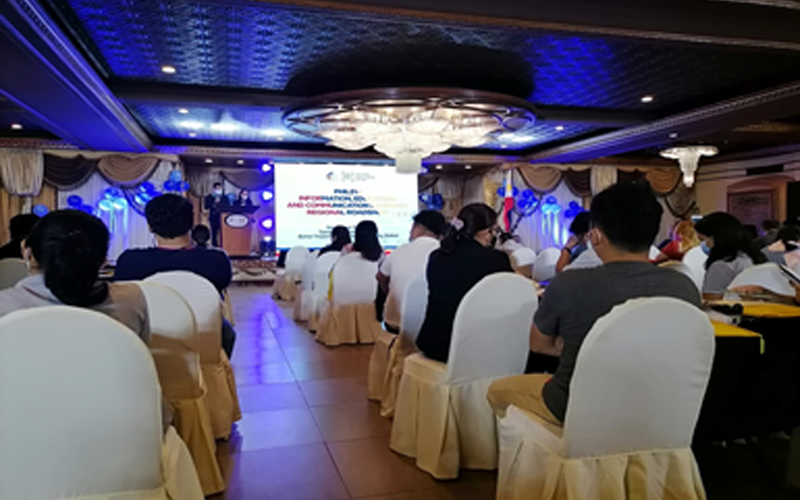
THE Philippine Identification (PhilID) card has no signature of the person bearing the card, so, does it mean, it is an inferior card?
No, says Philippine Statistics Authority Office In Charge and Financial and private Sector Use cases Division Chief Oliver Chancoco, during the open forum as part of the Philippine ID System (PhilSys) Information Education and Communication Regional Roadshow held at the Bohol Tropics, November 17.
Speaking on the PhilSys Application Programming interface-enabled authentication services, the electronic PhilID and the PhilSys Check, Chancoco said the signature which the PhilSys does not have is because a digitized system does not need it.
The PhilID card, is primarily established to provide a valid proof of identity for all citizens and resident aliens and can simplify public and private transactions, by eliminating the need to present other forms of identification when transacting business with government and the private sector.
The PhilID, which is subject to fitting authentication based on a biometric identification system, has a much better and more reliable verification of the identity of a person, much better than a signature.
Besides, a signature in the card can be easily copied, thus faked and could be used in cases of fraud, Chancoco said.
The card already contains registry data that are either demographic like one’s full name, Sex, date of Birth, Place of Birth, Blood type, address, citizenship, marital status, contact number and e-mail address, or biometric, which includes a front facing photograph, full set of fingerprints and an iris scan, he pointed out.
PhilSys has two simple functions: through the PhilSys Number (PSN), its creates a unique digital identity for all Filipinos and aliens and it provides reliable authentication of identity for secure and digital transactions, of which the card can also be used like an ATM or a credit card.
The PSN is a permanent 12 digit number which should be kept private and is not intended to be used for transactions, but this contains a PhilSys Card Number (PCN) which is its authentication.
When one uses his card, he may give his PSN and the one he is dealing with the transaction can check his PCN from the online PhilSys registry which automatically displays the front picture of the ID bearer, fingerprint, iris, contact number and date of birth.
The same data can be accessed from the PSA data registry by scanning the Quick Response (QR) Code at the back of the card.
According to Chancoco, the biometrics alone works as an authentication that is much reliable, fool-proof and can not be simply copied for unauthorized usage.
Besides, Republic Act 11055 especially Section 19 provides for the penal provision in an unlawful use of the PhilSys ID, or uses it for a fraudulent act or illegal purpose. This entails between P50K to P500K in penalties and 6 months to two years imprisonment.
On the other hand, using false information in PhilSys application, renewal and update, willful falsification, mutilation, alteration, or tampering of the PhilID, unauthorized use of PhilID/PSN by another person, possession of fake, falsified, or altered PhilID and transferring of PhilID or the PSN to any other person, can get one some 3-6 years imprisonment and P1,000,000 -P3,000,000 in fines. (rahc/PIA_7/Bohol)


